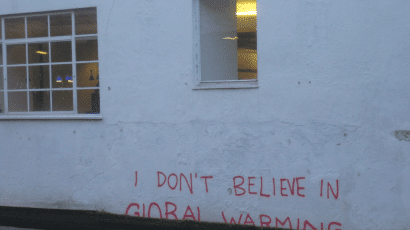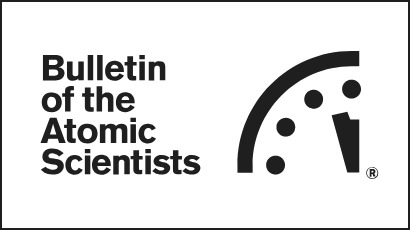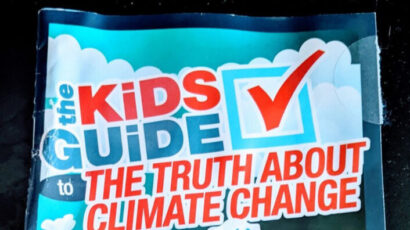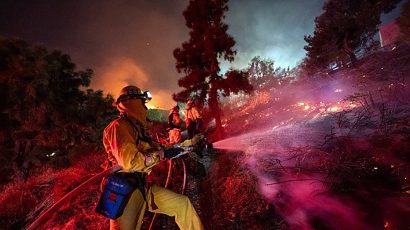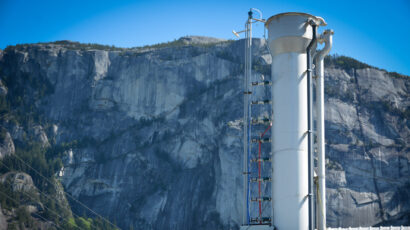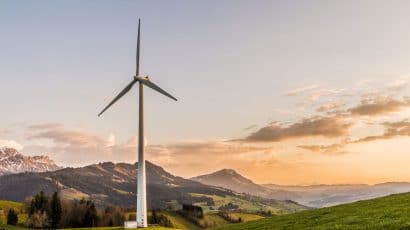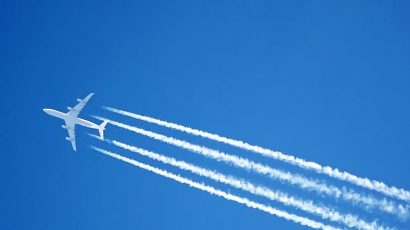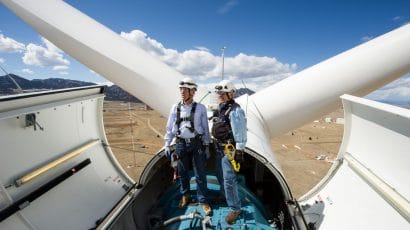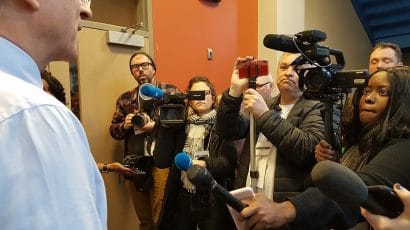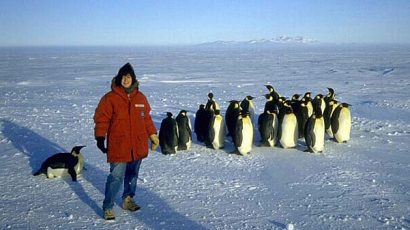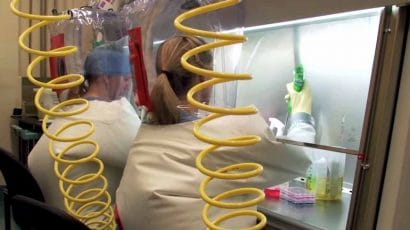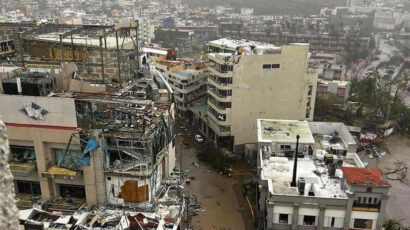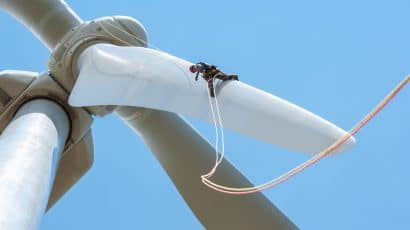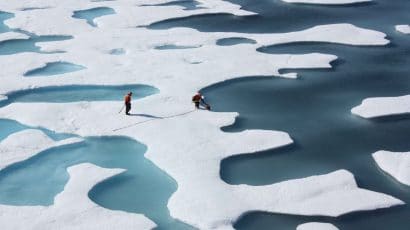Search results for
How should we teach students about climate change?
It’s not enough to just teach the science. Instructors should also dispel common myths and misconceptions.
Enhancing cooperation between the health and climate sectors
According to World Health Organization (WHO) estimates, climate change may already be causing more than 150,000 deaths per year, a number that is expected to grow in the future.
Kids and families: the latest targets of climate denialism propaganda
Producers of climate misinformation are targeting kids and families, delivering an updated message that acknowledges the existence of global warming—but minimizes the influence of human emissions.
Yes, there really is scientific consensus on climate change
Researchers publish a new meta-study showing that among the most relevant experts, consensus on climate change is about 97 percent.
A not-so-hot take on California fires, climate change, smoke waves—and the stories we need, to survive
We are living in a world of media hot takes. They come at us fast and furious, like embers blown from a firestorm by a fierce Santa Ana or Diablo wind. In an instant we’re surrounded on all sides. Quick judgments are demanded. This is exactly the opposite of the approach we need to confront the climate and other environmental challenges that we face these days.
Direct air capture: An expensive, dangerous distraction from real climate solutions
Separating carbon dioxide from air, while technically straightforward, is outrageously expensive.
Why Bill Gates and John Kerry are wrong about climate change
Despite what Bill Gates has to say—let alone climate czar John Kerry, who should have known better—we don’t have to rely on a miracle coming out of nowhere to deal with climate change. We already have all the technologies we need, here and now—and these tools will only get a lot better and cheaper, if recent history is any guide.
Just how bad is my air travel for the climate? And what should I do?
A conversation among some scientists led to some surprising findings about the carbon emission contributions of air travel. Bottom line: instead of "flight shaming," it's better to be selective about what mode of travel you choose each time, in each place.
Offshore windpower: “We are ready to rock and roll,” says Biden climate adviser
The Biden administration takes a huge step forward in renewable energy, with a 180-degree turn from its predecessor
On the New Hampshire campaign trail: What some candidates are saying about climate change. (Spoiler alert: It’s smart.)
Press gaggles, a guy who calls himself Vermin Supreme, bird-dogging, and hats with with the slogan “Make Earth Cool Again”—all part of a day on the hustings. But beyond all the surface hoopla of the New Hampshire presidential primary campaign, some of the candidates have actually put some thought into what to do about climate change.
Time for a cow tax? Buried in UN report is bad news about climate impact of factory farms
Methane may hold the key to deciding whether the earth continues to morph into a disaster-movie set over the next generation.
Susan Solomon: at the frontline of research on the ozone layer and its role in Earth’s climate
An interview with Susan Solomon, who solved the mystery of the Antarctic ozone hole and has won one of the world’s biggest science prizes.
The Bulletin brings top researchers to Geneva to talk biosecurity and pathogen research
The Bulletin is hosting a conference of top virologists and biological experts in Geneva, Switzerland, this week. The Pathogens Project will examine ways to ensure pathogen research is conducted as safely as possible.
Otis teaches a terrifying lesson in rapid hurricane intensification
Hurricane Otis shows that there's a scary new rapid intensification paradigm in the tropics. The whole world needs to worry about it.
Preparing for the next Hurricane Harvey
It's time to rebuild after Hurricane Harvey. But how do we avoid the same mistakes that made this "flood bomb" so bad?
How to respond to science-denial trolls
The subject of climate change always attracts online attacks. Here are a few ways to keep online discussion safe and civil.
Offshore wind: Poised for the big time. An interview with Anthony Kirincich
What the United States can and cannot learn about windmills from Europe, long the world leader in this form of renewable energy.
1978: Is mankind warming the Earth?
This report is based on a monograph the author prepared for the World Meteorological Organization in Geneva, Switzerland.
Beatrice Fihn: How to implement the nuclear weapons ban treaty
In this interview, ICAN's Beatrice Fihn lays out a possible future in which the ban treaty delegitimizes nuclear weapons, and nuclear weapons countries are persuaded to decide that it is best to give up the most fearsome weapons ever created—in those countries’ own interests.
